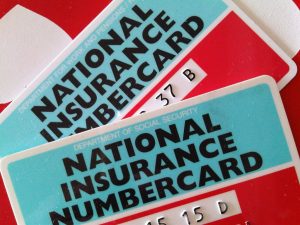Incorporating a business -_The process of registering your business with the company’s house.
One of the first decisions to make is to know what name you will call your newly incorporated company. You can decide to adopt your sole trading name however to be able to use the same name it must be available for use at the company’s house. If the name is unavailable, you can decide to choose another name or make some minor changes to the name such as adding a number, because you won’t be allowed to use the name that has already been registered.

You will need to be sure how many shares you would like to issue if you would like to add other directors or shareholders
The reason why you will need this is you will need their personal details when registering the limited company. You need to note that you have additional directors, they would also be accessed when opening the first bank accounts. After the registration is done, you will receive a congratulations letter from the company house, however, the important letter is the one that has your authentication code, The reason for this is if you would like to communicate with companies’ house online you would need these code every time you sign in onto the companies’ house website.
The HMRC will also write to you in weeks telling you about the compliance requirement required from you. My advice is for you to keep this letter safe as it would have your unique tax reference which the company would use in all their transactions with HMRC. The following documents should be kept safe documents to keep in your Incorporation certificate, Memorandum of Association, and Share certificates.
ADVANTAGES OF INCORPORATING THE BUSINESS
-
National insurance:
The national insurance paid by a director is different from a sole trader. The sole trader pays Class 2 and 4 national insurance.
As a director, your national insurance is assessed yearly threshold rather than monthly or weekly, so for the tax year 2023/24 you only pay national insurance on your income when the cumulative income goes over £11,908.
The national insurance paid into the national insurance pot of the director is contributed by the director by both the director and the limited company.
National insurance is referred to as Class 1 primary and secondary national insurance.

-
Director salary
The business owner can now receive a salary from your limited company which will be used as an expense for your limited company. The effect of deducting the salary from the company will give a tax relief of 19% for the limited company.
Whilst a sole trader, the director would have had to pay tax at the 20%, 40%, or 45% on the same income.
Please note that this tax relief is only effective if the director does not have another employment in the tax year under PAYE.
-
Car benefit
After incorporation, you can accept a company car from the limited company. The Director will have to pay tax on the car benefit for using the car provided by the company and the company would pay Class1A national insurance.

-
Capital gain tax issues:
For a Limited company that invests in properties or deals with properties. As an individual when a sole trader sells a property, they can only claim annual exemption relief at £11300 at least for this tax year.
But if a limited company sells a house then you can claim an indexation allowance which relates to the inflation from when the property was bought up to the point the property was sold.
Disadvantages of incorporating your business
-
Compliance Requirement
The accounting and tax compliance requirement increases. That means the director has more work to do now the company has been incorporated. The accountancy fee goes up; more work is required than when they were you were self-employed.
-
Profit distribution
The director would have to plan how to distribute profit from your business. While they were still a sole trader, it didn’t matter how much money was drawn because they will still have to pay tax on the drawings however because of the separation between the legal entity of the company and the director. So, the director will have to plan how the profit can be tax efficiently withdrawn from the business Examples of methods of profit distribution are salary, dividend, pension, and other benefits such as car benefits.
-
Dividend tax
Another thing to put into consideration when incorporating your business is dividend tax. Since the introduction of dividend tax, the first £2000 received from the limited company is tax-free. However, any amount received that is still within the first band of tax will be a charge of tax of 7.5% of the dividend received over £2000. If the director receives a dividend from the limited company and they are already a higher rate earner (Has received income between £50,000 and £150,000) or an additional taxpayer (Has received income between more than £150,000). The dividend tax rate that will be applied will be 32.5% and 38.5%. The main issue here is the dividend paid to the directors is a distribution from the profit of the company that has already been taxed, therefore creating a double tax effect (corporation tax and personal tax).
-
Director’s loan in a close company
Another thing to put into consideration as well is when the director receives a loan from a limited company, If unpaid by 9 months after your year-end, the HMRC would charge the company a charge which is at 32.5%. This would be returned to the company at some point when they pay the money back to the limited company or the money is being released but still, you would have to pay the money at that time. There may be other disadvantages, but it would have to be based on your circumstances.
Conclusion to incorporating a business in the UK
Thanks for reading our blog post.
We support businesses that are about to incorporate their business or already operate a limited company in the UK.
If you would like us to support your business or with any personal tax support, kindly contact us.
